Marketing has become a highly competitive industry in the modern world. Different marketing and customer management types can be overwhelming for many people, especially those just starting their business.
However, there are helpful tools that can make the process much easier. Salesforce and Mailchimp are two of the most popular, and it may be hard to choose between them.
This article will cover the features that each platform brings to the table so you can figure out which one suits your needs best.
Can Salesforce Replace Mailchimp?
Mailchimp is a powerful email marketing platform, and the company has been adding new features to broaden its capabilities in different CRM fields. They call themselves an “all in one marketing platform,” but is that good enough?
Many believe that despite Mailchimp’s attempts to keep up with the innovation and develop its features to be more advanced, it hasn’t been entirely successful in satisfying professional users.
On top of that, their customer support has become unhelpful in recent years, and their pricing changes weren’t appealing to most users.
It’s safe to say that Mailchimp is still one of the top email marketing software suited for beginners and small businesses. Still, there are several competitors with better CRM features, and one of them can be Salesforce.
Salesforce packs comprehensive and complete CRM tools covering different marketing areas. It’s well suited for both small and large enterprises in many ways, but it’s mainly designed for sales efficiency and not for larger email campaigns.
Salesforce’s built-in email service provider (ESP) may not be enough for some companies.
Mailchimp is one of the best ESP options. It may be the perfect choice to use Salesforce as a CRM powerhouse and get help from Mailchimp for email marketing purposes.
What Is Salesforce Mainly Used for?
Salesforce is a global cloud computing company with the world’s first Customer Relationship Management platform.
Different companies and organizations use Salesforce platforms and software to understand their customers, partners, prospects, market services, and potential customers and connect with them better.
Salesforce has various apps and analytics, including Sales Cloud, Commerce Cloud, Marketing Cloud, Service Cloud, Analytics Cloud, App Cloud, and so on. These apps help overwhelmed companies get a complete view of their customers and then analyze their unreadable data and help them share it.
Here are the primary uses of Salesforce:
- Allows businesses to develop and run applications without coding on a ready-to-go platform.
- Helps your company’s marketing, sales, commerce, service, and IT teams to work as a unified group from anywhere. Salesforce admins can also work remotely.
- Engage customers with relevant digital marketing.
- Launch and scale e-commerce built around your customer preference to sell smarter and grow your business.
- Integrate data from different social networking sites and generate easily understandable data reports.
- Extract customer data into meaningful information to identify their interests and perception.
- Help regain the inactive or old customers.
- Track customer interaction and improve the customer base to increase sales.
What Is Mailchimp Used for?
Mailchimp is a web-based marketing automation platform that helps companies and businesses to manage and connect to your customers, partners, clients, and other interested parties through email.
Mailchimp helps you reach out to your target market by building and managing your mailing lists, creating emails using pre-designed templates, and automating your marketing campaigns. It also offers analytical features to help you determine your marketing strategy’s effectiveness.
This platform allows you to send an infinite number of emails and newsletters to an endless number of subscribers, a feature that Gmail and Yahoo lack.
Mailchimp has expanded its feature set and added more CRM tools, including a website builder with pre-designed color palettes and themes, an online store builder, appointment scheduling software, and so on.
Can Salesforce Send Out Emails Without an Emailing Service?
As Salesforce stated on their website, there’s no need for integrating with external email services to send out emails. You can use the Salesforce servers to do so from Salesforce itself.
Is Mailchimp Considered a CRM?
CRM or Customer Relationship Management helps companies and businesses understand customer needs and manage their relationship and interactions. The goal is to improve profitability by improving business relationships with customers.
Mailchimp started up as a simple email marketing platform but has recently introduced some CRM tools to help businesses interact with their audience. So, it’s safe to consider Mailchimp a CRM.
Is Mailchimp Worth Using?
To decide if Mailchimp is the right choice for your needs, you should know its pros and cons:
Mailchimp Pros
- Established, Committed, And Reliable Business: Mailchimp has been around for several years, and they’ve had enough time to provide a reliable and polished product to their customers. They’ve also been working on updates and adding new features to their platform.
- Free to Start: Mailchimp’s “Forever Free” plan allows new users to get a subscriber list of 2000 with a monthly send limit of 12000 emails for free. This feature primarily benefits newly found small businesses on a budget.
- User-Friendly and Hassle-Free Campaign Designing: There’s no need for coding knowledge to work with the super user-friendly Mailchimp platform. Using pre-designed customizable templates, you can build a website and develop a professional-looking email with simple drag and drop tools.
- Email Automation: Mailchimp’s automation features let you customize the user experience, fulfill your target marketing business, and map out your entire customer journey without having to write and send every email individually. You can use the automation feature for postcards, coupons, Google, Facebook, and Instagram ads, too.
- Email Scheduling: You can schedule your emails in advance and adjust their send time.
- Email Preview and Test: It’s vital to preview and check your designed email on different interfaces before sending it out. Mailchimp allows email testing among desktop, mobile, and web-based interfaces.
- Custom Landing Pages: Mailchimp also allows creating custom landing pages for emails in its platform.
- Geotargeting: Mailchimp lets you segment your email contact list based on their location to fulfill localized marketing requirements.
- Surveys and Intelligent Suggestions: Mailchimp’s detailed survey tools allow you to create standard shipping experience surveys, use surveys for pricing insights, develop product ideas, and so on. It also has billions of data points for generating product recommendations and creating optimized content to reach the right audience.
- Thorough Reports: Mailchimp offers a detailed dissection about the success and failure of your campaigns through interactive charts and graphics that you can easily analyze and understand.
Mailchimp Cons
- Expensive Premium Plans: Mailchimp’s “Forever Free” plan isn’t free forever! As soon as you grow your subscriber’s list over 2000, you’ll have to pay for a premium plan which gets pretty steep compared to some of their competitors.
- No support for the free plan: There’s no email or live chat support available for their free plan. Only their paid plans benefit from their support, which is unfortunate.
- Not Affiliate Marketing Friendly: If you’re an affiliate marketer, be aware of Mailchimp’s strict policy that prohibits affiliate marketing under its Terms of Use.
So, is Mailchimp worth it? If you’re just starting your business and money is tight, Mailchimp is your best choice for learning email marketing without having to pay.
They offer many articles and video tutorials to get you started with firing out the occasional round of emails. And since they’ve been adding more CRM features, you’ll have all the tools you need in one platform.
However, if you have an established business and email marketing is at the center of your plans, you’ll benefit more from one of the niche options on the market, with more features and more affordable plans for huge subscriber lists.
What Are the Best Alternatives to Mailchimp?
Constant Contact
Much like Mailchimp, Constant Contact is better suited for small businesses and individuals who want to start with email marketing. It’s an intuitive software that’s easy to use, and it focuses on both email marketing and a few other CRM tools. Here are some of the features Constant Contact offers:
- Easy creation of professional emails and newsletters with various prebuilt templates.
- Email managing and tracking tools.
- List building and audience segmentation tools.
- Email automation features.
- A/B testing tools.
- Survey and poll creation tools.
- Built-in tools for eCommerce solutions and integrations.
- Social media campaign integration.
- Thorough reports and analysis on email marketing performance.
- Email testing across devices.
- Dedicated mobile app for managing emails.
- Unmatched support through email, phone calls, live chat, community support, and so on.
Constant Contact offers a 60-day free trial option with no obligations, and after that, their pricing is based on the number of contacts.
If you want to know if Salesforce can replace Constant Contact, read here.
AWeber
AWeber has been a huge Mailchimp competitor for several years. This company also focuses on email marketing and targets small businesses, as well. It offers a freemium plan like
Mailchimp and allows up to 500 subscribers and 3,000 email sends per month. It beats Mailchimp when it comes to bulk email marketing because their paid plans are less expensive than Mailchimp’s. Take a look at AWeber’s main features:
- Easy email and newsletter creation with various customizable templates.
- Auto-fetch articles for creating automated blog newsletter emails.
- Email automation tools.
- List management and segmentation.
- Smart unsubscribe management.
- Dedicated app.
- Email tracking and analytics.
- A/B testing.
- Conversation tracking tools.
- Advanced e-commerce solutions.
- Integration with 1,000+ platforms including eCommerce platforms/software.
- Decent support, including live chat and educational tools.
SendinBlue
SendinBlue is more than an email marketing tool, and it targets every marketing aspect from CRM and social media ads to SMS marketing.
This tool is an excellent Mailchimp alternative, especially for those who want to grow their business and contact list as they go.
They offer a free plan for beginners, and you can send up to 300 emails per day.
Their paid plan’s cost is based on the number of emails you send, and they all offer unlimited contact storage, which makes it cheaper than Mailchimp.
Here are the wide variety of marketing features SendinBlue offers:
- Easy to use email builder with drag-and-drop tools and ready templates.
- SMS marketing, live chat software, and transactional emails.
- Email automation tools and autoresponders.
- Landing page creation tools.
- Social media ad creation tools.
- Send time optimization and additional testing features.
- Unlimited list management and segmentation options.
- Real-time reporting and analytics.
- Email support, API, plugins, phone, and chat support.
Final Thoughts
When looking for marketing software for your company, you’ll face various competitive brands.
Review and consider their characteristics, plans, costs, terms, and any helpful information you can find before deciding.
Remember that your business will ultimately grow, so aim for more advanced tools from the beginning.


